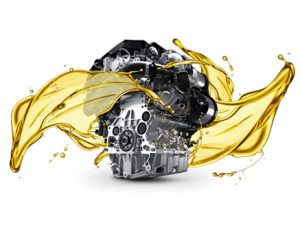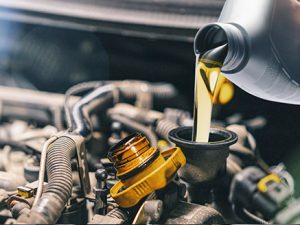When it comes to car maintenance, engine oil plays a crucial role in ensuring the longevity and performance of your engine. It helps lubricate moving parts, reduces friction, and prevents overheating. But there’s more to understanding engine oil than simply changing it regularly.
What is Engine Oil?

Engine oil is a specially formulated fluid designed to lubricate the moving parts of your vehicle’s engine. It’s responsible for reducing friction between metal components, carrying away heat, and preventing corrosion, ensuring the engine runs smoothly and efficiently.
Why is Engine Oil Important?
- Lubrication and Friction Reduction: The primary function of engine oil is to lubricate the moving parts of the engine, such as pistons, cylinders, and crankshafts. Proper lubrication reduces friction, which in turn reduces wear and tear on engine components.
- Heat Dissipation: As the engine operates, it generates heat. Engine oil absorbs and dissipates this heat, preventing the engine from overheating and reducing the risk of damage.
- Cleaning and Detailing: Engine oil helps clean the engine by trapping dirt, metal particles, and other debris. Over time, these contaminants can accumulate and cause damage, which is why it’s essential to change the oil regularly.
- Corrosion Prevention: The oil also forms a protective layer on engine components, preventing moisture from coming into direct contact with metal surfaces, thus reducing the chances of rust and corrosion.
Types of Engine Oil
- Conventional Oil: This is the most common type of engine oil and is derived from refined crude oil. It works well for everyday driving but may require more frequent oil changes.
- Synthetic Oil: Engineered for high performance, synthetic oils are designed to offer better protection and last longer than conventional oils. They can handle high temperatures and harsh conditions, making them ideal for high-performance engines or extreme driving.
- Semi-Synthetic Oil: A blend of conventional and synthetic oil, semi-synthetic oils offer a balance between performance and cost. It provides better protection than conventional oils and can extend oil change intervals.
- High-Mileage Oil: Specifically formulated for vehicles with over 75,000 miles, high-mileage oils contain additives that help reduce oil consumption and prevent leaks, making them ideal for older engines.
When Should You Change Your Engine Oil?

Oil changes are one of the most essential parts of regular car maintenance. The general rule of thumb is to change your oil every 3,000 to 5,000 miles, though newer vehicles may have longer intervals. Always consult your vehicle’s owner’s manual for the manufacturer’s recommendation, as the ideal time for an oil change may vary based on the type of oil and your driving habits.
Signs That Your Engine Oil Needs to Be Changed:
- Engine Noise: If your engine is louder than usual, it may be a sign that the oil is no longer providing the necessary lubrication.
- Oil Light: The oil pressure light on your dashboard may turn on if the oil level is low or if the oil is too thick to circulate properly.
- Exhaust Smoke: Blue or gray exhaust smoke can indicate that the engine oil is burning or leaking.
- Dirty Oil: If the oil appears dark and dirty or if you notice a buildup of sludge, it’s time to change the oil.
How to Check Engine Oil Levels
- Locate the Dipstick: The dipstick is usually found near the front of the engine bay, and it’s used to check the oil level.
- Check the Oil Level: Remove the dipstick, wipe it clean, and reinsert it into the tube. Pull it out again and check the oil level. If it’s below the recommended line, top it up with the appropriate oil.
- Inspect the Oil Condition: Take a look at the oil’s color and consistency. Fresh oil is typically amber or light brown, while old or dirty oil is darker and thicker. If the oil looks dirty or gritty, it’s time for a change.
Conclusion
Engine oil is essential to the health of your car’s engine. It lubricates moving parts, reduces friction, absorbs heat, and prevents corrosion. Regular oil changes are crucial for ensuring your engine runs smoothly and efficiently for years to come. By understanding the importance of engine oil and maintaining proper levels, you can keep your vehicle in peak condition and avoid costly repairs down the road.